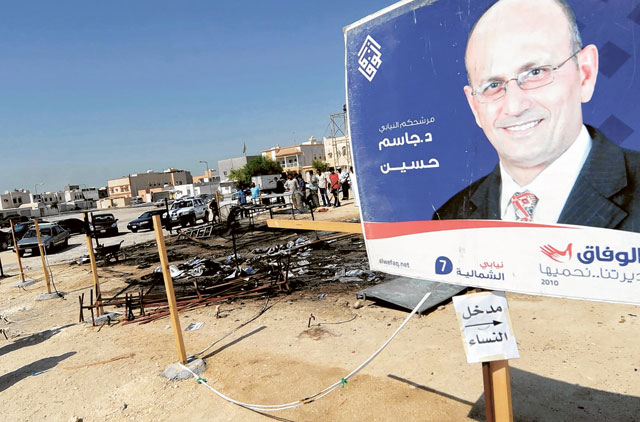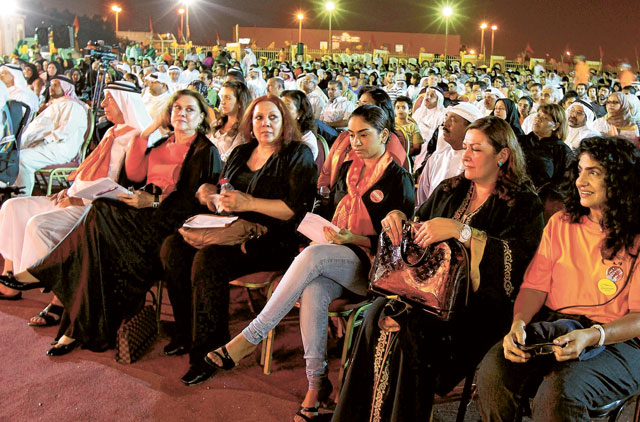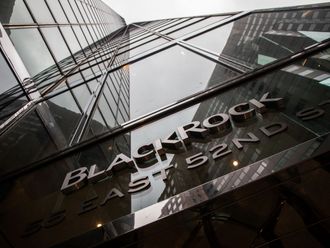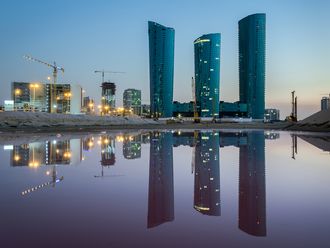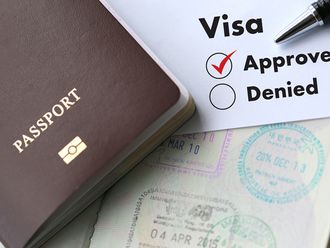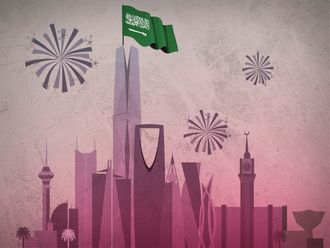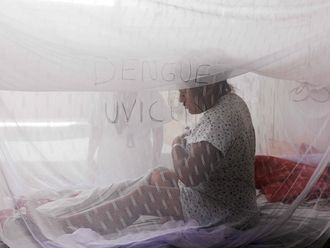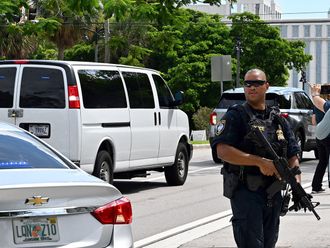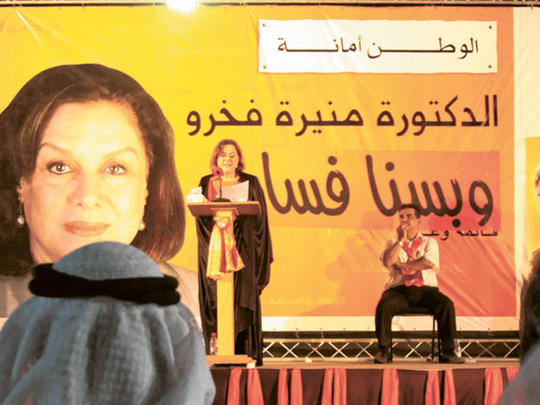
Manama: As Bahrain gets ready to go to polls tomorrow, the silence, after the vociferous campaigns of the last few days, is rather disturbing.
A festive mood prevailed on Thursday evening, as the campaign was about to end. Several candidates organised relaxed gatherings to offer thanks to and serve food for their supporters and there were amusements rides for the young children.
However, the celebratory atmosphere could not conceal the candidates' concern about how would they fare on Saturday, when about 320,000 people are expected to cast their ballots to choose the remaining 35 politicians and 39 municipal councilors.
In an unusual development, five politicians, all members of the government from 2006 to 2010, have been assured of their win in the 40-seat lower chamber, after their opponents pulled out, or, in the case of Latifa Al Gaood, the first woman in the Gulf to enter an elected parliament, no contender signed up for the challenge. One other municipal councilor was also elected before voting began because of the lack of a challenger.
Al Wefaq, the country's largest political society and the biggest parliamentary bloc in the 2006 to 2010 government, with 17 politicians, has reiterated its belief that its candidates will, this year, win the vote in its 18 constituencies.
Ali Salman, the society leader, said their confidence was based on careful studies and assessment. Should Al Wefaq's calculations prove true, it will need three more candidates to form the majority in the lower chamber.
According to the opposition, the three could come from the National Action Democratic Society ‘Waad’, Bahrain's most liberal society, in an alliance of strange bedfellows, united by little else than a strong desire to reach the lower chamber. A similar alliance, but not so strong, brought the two societies closer four years ago, but yielded no results.
In 2006, Waad fielded six candidates, but failed to win a seat, although their star politician Muneera Fakhroo forced a second round on Salah Ali, the head of the Islamic Menbar, who went on to become the second deputy Speaker of the lower chamber.
Muneera is running again this year, along with Ebrahim Sharif, the head of Waad, and Sami Al Siyadi, a lawyer.
The left is also represented by Hasan Madan, the head of the Democratic Progressive Menbar, who came under heavy fire from religious groups after he refused to drop out of the race.
Hassan Al A'ali, the head of the pan-Nationalist Rally, was also the victim of a character-assassination campaign. Police last week arrested two men for distributing pamphlets alleging he was receiving funds from suspicious sources.
According to Baqer Al Najjar, a professor of sociology, leftist candidates and women have chances to win only in sect-mixed constituencies.
But with Elections Day fast approaching, Bahrainis are wondering whether the candidates in the new parliament will be voted in on the basis of their personal merit, the societies they represent, or on the pledges they made during the campaign.
Islamist societies Al Wefaq, Al Asala, the flag of Salfis, and the Islamic Menbar, an offshoot of the Muslim Brotherhood, insist that they will win because the Bahrainis are essentially committed Muslims who want to see candidates who defend their interests voted in, while upholding Islamic values.
"Even if our societies lose a couple of candidates, the people will vote for independent Islamists," Adel Al Mouawda, who’s already been assured of a record third term, said. However, independents say their chances of winning or getting re-elected are excellent, after people have realised that other political societies, burdened by consensus and commitments, have failed them.


